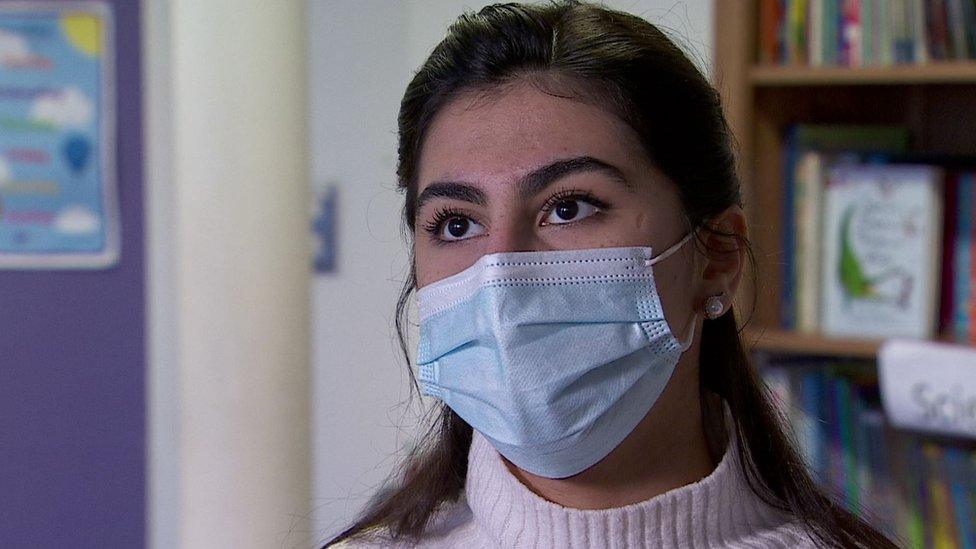Asylum seeker health needs 'not being met', GP says
- Published
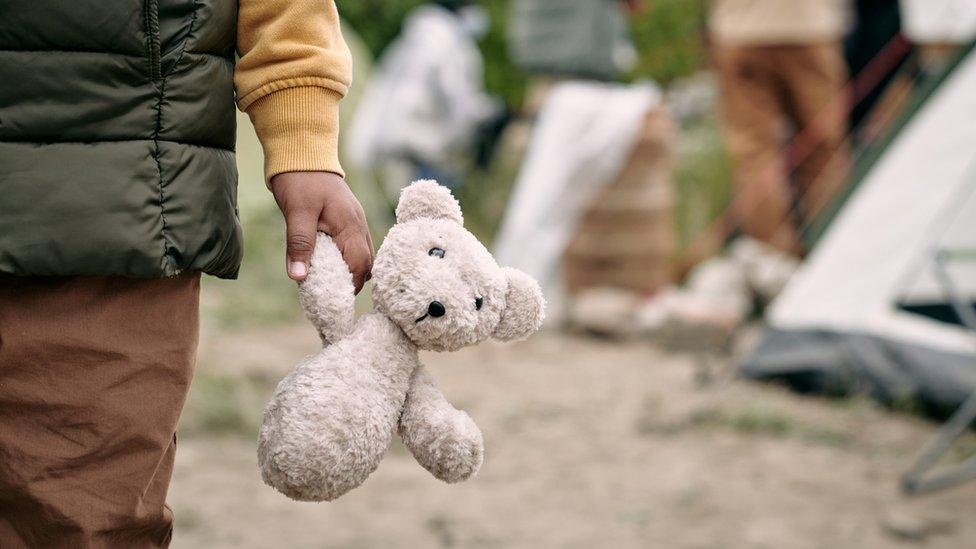
Dr Kieran Kelly said many asylum seekers suffered mental trauma through their journey to the UK
Asylum seekers in Belfast are living without access to basic necessities and need greater support, a Belfast GP has said.
Dr Kieran Kelly, some of whose patients live in a city centre hotel, said specialist health hubs were needed.
"This is shining a light on a problem that has been with us for quite a while," he said.
The Home Office said there had been an "unprecedented increase in asylum cases".
"Despite this, we continue to ensure that safe accommodation, appropriate for individual needs, is provided to asylum seekers who would otherwise be destitute," it added.
Dr Kelly told BBC's Good Morning Ulster programme that several members of families often live in single rooms without "very basic household facilities" such as a fridge.
The GP said he wanted to prescribe antibiotics to a child for a serious chest infection, which needed to be kept refrigerated, but the family had nowhere to store it.
"They come to me, usually for one initial problem, but very quickly other problems start to be declared," he continued.
'Trauma'
Dr Kelly said mental health issues among asylum seekers was a "universal" problem.
"The trauma that comes with the asylum journey and getting into the country creates a myriad of mental health problems and these, in my experience, are not being addressed," he said.
The Home Office said asylum seekers had "access to health and social care services, which is provided by the NHS, from the point of arrival in the UK".
In an effort to deter people crossing the Channel to seek asylum in the UK, the government has outlined plans to take some asylum seekers to Rwanda to claim asylum there instead.
However, on Tuesday, seven asylum seekers were taken off a flight following a legal challenge to the scheme.
Mears, which was awarded the UK government contract to support asylum seekers in accommodation in Belfast, said it worked closely with local authorities and other partners "to support service users in hotels", but that the NHS was responsible for their healthcare provision.
"In hotels, food and snacks are provided to all services users and the nutritional content and portions are in line with NHS Eatwell guidelines," Mears said in a statement.
"Three meals a day are provided and snacks and drinks are available throughout the day."
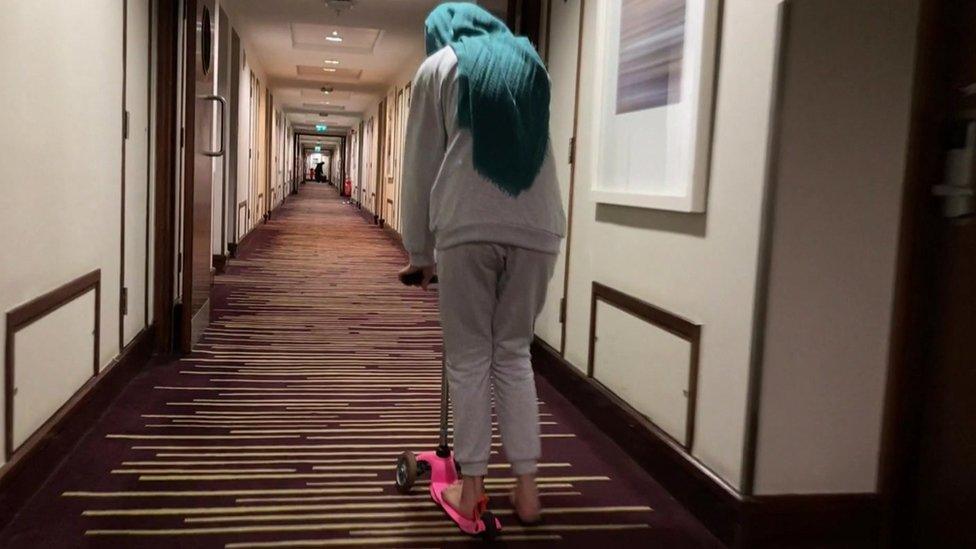
Some families are living temporarily in hotels in the Belfast area
Dr Kelly said he wanted to highlight "the lack of facilities and the lack of provision for this community".
"In my opinion there needs to be some joined-up thinking here and there needs to be some sort of hub, some sort of facility that has a multi-disciplinary approach and that can provide mental health services, GP services, social services," he outlined.
On Thursday, BBC News NI reported the story of an Iranian woman whose family had been moved from Belfast to Londonderry.
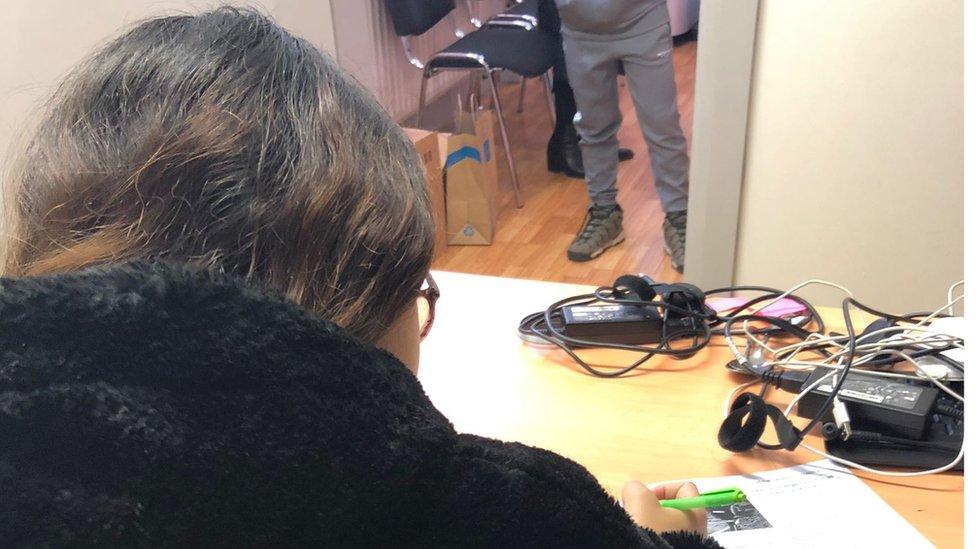
Fatemah's eldest daughter sat exams in an office in Londonderry
Fatemah explained the family was given a week's notice and her children had been forced to leave their school and friends behind.
She said it was a "lie" that the asylum system made children a priority.
In response to Fatemah's case, the Mears Group said there was an "acute shortage of suitable housing" and the family had been "prioritised for a move to a family home" despite their preference to remain in Belfast.
Related topics
- Published13 December 2023
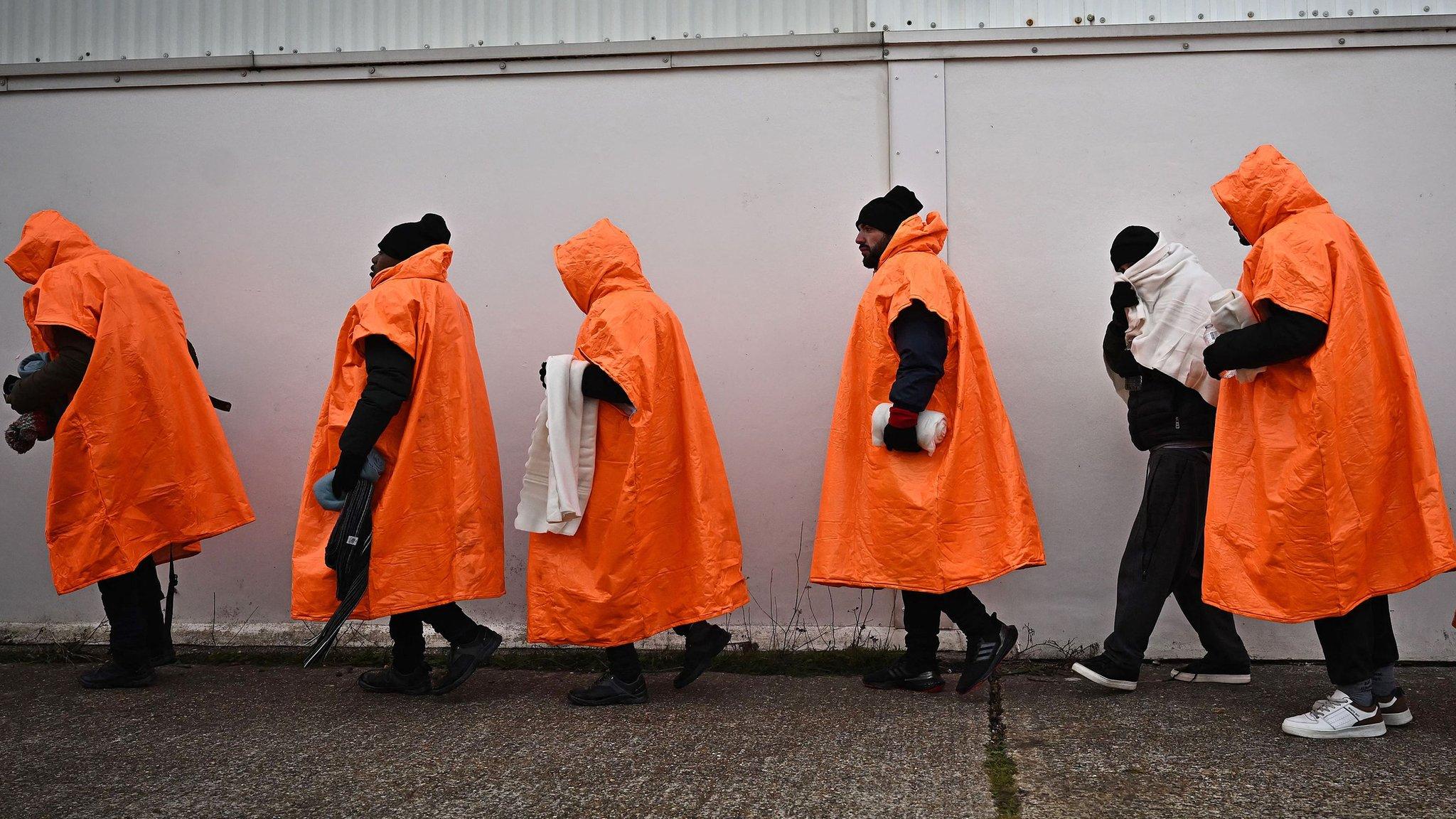
- Published17 June 2022

- Published16 June 2022

- Published11 December 2021
